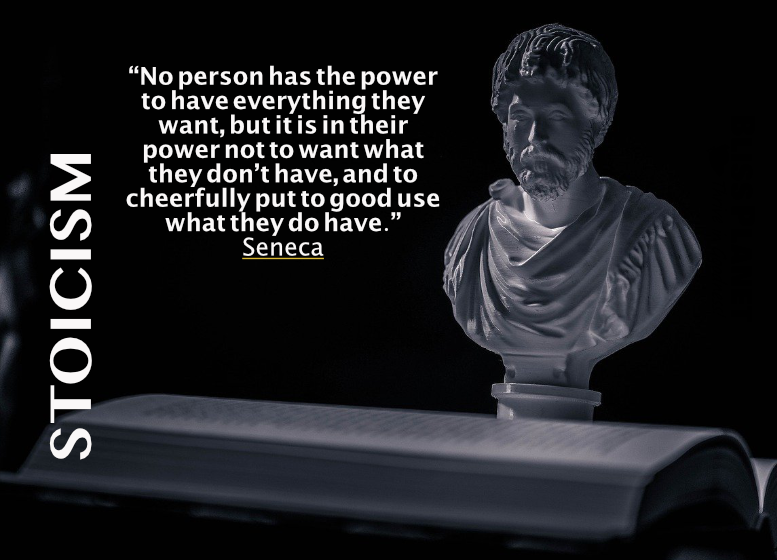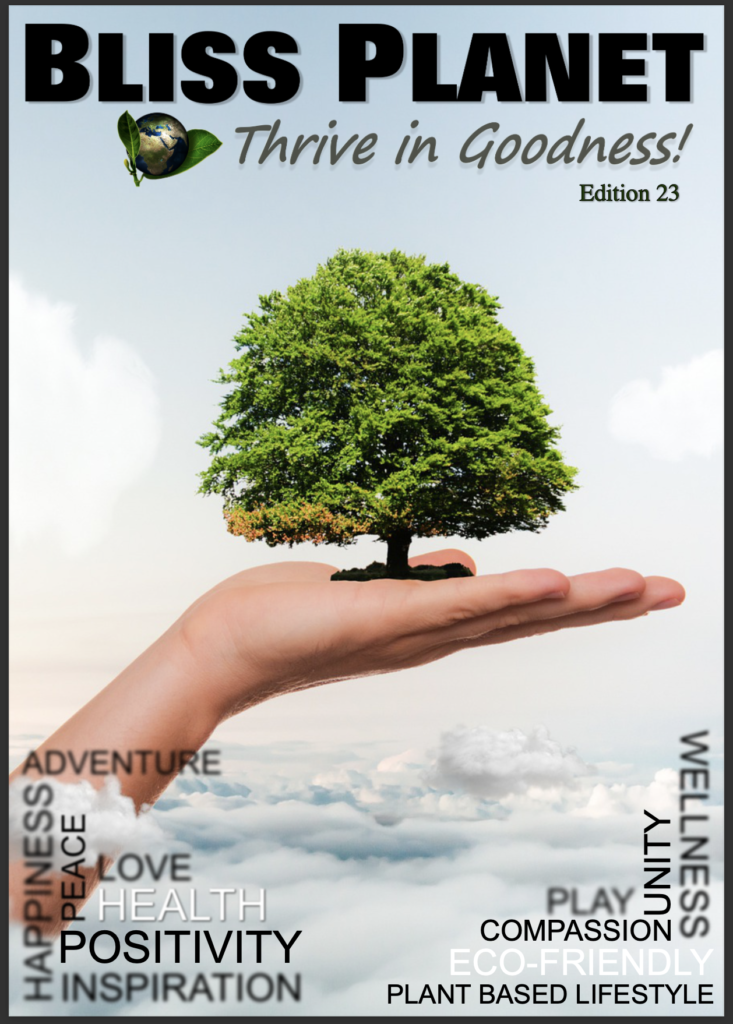Introduction
The ancient philosophy of Stoicism is often seen as out-dated and unhelpful in today’s fast-pced world. But this ancient wisdom is more relevant now than ever before. Stoicism helps us to face life’s challenges with courage and resilience, and to find strength when facing difficult times.
The Stoic philosophy was first developed by the ancient Greek philosopher Zeno of Citium, who was born in the third century BC and founded the school of philosophy known as Stoicism. Its teachings soon spread across the ancient world, becoming the dominant philosophical system of the Roman Empire. The core of Stoic philosophy is the idea that we have control over how we respond to events in our lives, and that we should use this power to live a life of virtue and purpose.
Stoicism teaches us to develop virtue, acceptance, and focused action, and to use meditations, visualizations, and other techniques to help us cope with life’s challenges. It encourages us to reframe our thoughts, repurpose our emotions, and release negative beliefs. And it encourages us to invest in self-awareness, self-acceptance, and living a life of purpose.
Stoicism has been a source of comfort and guidance for millions of people throughout the centuries, and it can be just as helpful in our own lives today. By adopting Stoic principles, we can find strength and resilience to handle discomfort, uncertainty, fear of failure, and even unhappiness. This guide will provide an overview of the Stoic philosophy and help you to understand its principles and practices, so you can reap the benefits of Stoicism and take steps to thrive in life.
“No person has the power to have everything they want, but it is in their power not to want what they don’t have, and to cheerfully put to good use what they do have.” – Seneca
Three Core Principles of Stoicism
Stoicism is a philosophy with a long history, going back more than two millennia. Over the centuries, it has evolved into a highly admired and impactful set of beliefs and practices. At its roots are three core principles that can encourage and empower individuals to lead a more fulfilling life.
The first of these principles is the concept of virtue. Virtue is the foundation of all Stoic thought and action. It means living an ethical life of integrity and honesty, where a person does the right thing even when it is difficult. It is the concept of rising above base emotions and desires to make decisions that are best for oneself and society. By striving for virtue, one can lead a moral life of self-improvement and be a positive example to others.
The second of the three core principles is acceptance. The Stoic philosopher Epictetus said “It’s not what happens to you, but how you react to it that matters.” Acceptance does not mean simply giving up or giving in, but rather understanding that certain things are out of our control and we must accept our circumstances. It is about letting go of the things we cannot control and being mindful of the things we can.
The third core principle of Stoicism is focused action. Our lives are often filled with distraction and procrastination, but Stoicism teaches us to take action and complete those tasks that are necessary and important. This is not about rushing into every task without thought or purpose, but rather, it is about being intentional in our actions and staying focused on the goal. Focused action is about constantly striving to do better and to reach our goals.
Stoicism is a way of life that can provide great benefit and peace of mind. By understanding and adhering to these three core principles, individuals can live a happier and more fulfilled life.
Stoic Practices and Exercises
Stoicism is a philosophy that emphasizes personal growth and development. To help you cultivate the Stoic mindset and reap its many benefits, there are a few exercises and practices you can use to help you internalize the Stoic principles.
Meditations: Stoicism is rooted in mindfulness and closely connected with meditation. Quieting your mind and sitting in stillness can help you become more aware of your thoughts, feelings, and emotions. It also allows you to better observe reality as it is – free from judgment and interpretation. Regular meditation can help you become more mindful and attuned to the present moment, developing the Stoic virtue of accepting what is and what can’t be changed.
Visualization: Visualization is a powerful tool that can help you manifest your goals. Visualization allows you to see what it is that you want to achieve. It also allows you to envision how you will feel once you have achieved your goals. Through visualization, you practice the Stoic principle of focused action. You focus on your desired outcomes and use your imagination to motivate yourself to take action.
Journaling: Journaling can be a great way to practice self-reflection and examine your thoughts and feelings. It can help you become more aware of your internal dialogue and take an honest, dispassionate look at yourself. Journaling can also help you process your emotions and gain clarity on your values and goals. By writing things down, you can begin to make sense of the thoughts swirling around in your head and make better decisions in the future.
Stoic philosophy encourages us to be mindful of our thoughts and emotions. Regular practice with these exercises can help you internalize the Stoic principles and create the positive habits and mindsets necessary to lead a more fulfilling life.
Stoic Habits and Mindsets
Stoicism teaches us that part of our struggle is the way we view the world and the way we think. In order to thrive, we must reframe our thoughts and repurpose our emotions. By cultivating Stoic habits and mindsets, we can become better equipped to face the challenges of life.
Reframing Thoughts: One of the most important Stoic habits is to reframe our thoughts. We can choose to see our hardships and struggles as an opportunity for growth. Instead of automatically assuming our current circumstances are our “lot in life”, we can use them to become more resilient, more determined, and more focused on the things that truly matter.
Repurposing Emotions: Another key habit of Stoicism is to repurpose our emotions. Rather than allowing ourselves to be overwhelmed and enmeshed in negative emotions, we can use them as a source of energy. When we become aware of our negative feelings, we can pause and ask ourselves: “How can I use this emotion to empower myself?”
Releasing Negative Beliefs: Lastly, Stoics are taught to release negative beliefs. It’s important to recognize that the way we think and feel about ourselves has a major impact on our life. We can practice releasing toxic thoughts and beliefs so that our self-talk becomes more supportive. This will enable us to build greater self-confidence and a stronger sense of self-worth.
Stoic habits and mindsets enable us to take control of our thoughts and emotions in order to create a more meaningful and fulfilling life. By reframing our thoughts, repurposing our emotions, and releasing negative beliefs, we can cultivate a more positive mindset and unlock our potential for growth and success.
“We are more often frightened than hurt; and we suffer more in imagination than in reality.” – Seneca
Adopting Stoic Philosophy
Stoic philosophy is based on three core principles: virtue, acceptance, and focused action. Adopting these concepts can help individuals to thrive in life and take control over their emotions and thought processes. The following are some steps individuals can take to adopt Stoic philosophy.
Investing in Self-Awareness: A key step to adopting Stoic philosophy is to invest in self-awareness. This means being aware of your thoughts, feelings, and behaviors and understanding how these affect your life. This practice encourages individuals to become mindful and in-tune with their inner selves and to reflect on their own actions. Being mindful of your thoughts can help you to recognize any negative beliefs or patterns of thinking that may be limiting your potential.
Unconditional Self-Acceptance: Adopting Stoic philosophy also involves practicing unconditional self-acceptance. This means learning to accept all parts of yourself, both the good and the bad, rather than constantly judging and criticizing yourself. It’s important to remember that we all have our strengths and weaknesses, and it’s only when we accept ourselves that we can move forward and make positive changes.
Living a Life of Purpose: One of the most important aspects of Stoic philosophy is living a life of purpose. This means having a clear vision of what you want to accomplish in life and taking steps toward achieving it. It’s important to remember that our purpose doesn’t necessarily have to be grand and ambitious. It can be as simple as taking time for yourself, helping others, or simply pursuing something that brings you joy and fulfillment.
By taking steps to invest in self-awareness, practice unconditional self-acceptance, and live a life of purpose, individuals can begin to adopt Stoic philosophy and take control of their own lives. This approach helps individuals to move away from feelings of fear and anxiety and instead approach life with a sense of calmness and resilience. Focusing on the present moment can help us to find peace and contentment within our lives.
Overcoming Challenges with Stoicism
In life, we will inevitably face different obstacles, uncertainties, and fears. It is during these moments when Stoicism can be an invaluable guide. Its core principles of virtue, acceptance, and focused action can help us navigate the challenges and hardships of life.
Discomfort & Uncertainty:
One of the most difficult challenges to face is discomfort and uncertainty. When we’re unsure of the outcome of a certain situation, it can be easy to become overwhelmed by fear and anxiety. However, Stoicism teaches us that we can only control our attitude, and that we should focus on what we can control, rather than worrying about what we cannot.
Fear of Failure:
It is natural to fear failure and the consequences of not achieving our goals. However, Stoics believe that our actions must be motivated by our purpose and values, rather than by the fear of failure. We must be willing to take risks and accept the consequences of our decisions, regardless of the outcome.
Unhappiness:
Unhappiness can be a difficult challenge to overcome. Stoicism teaches us that we must look inward and find true happiness within. We must take responsibility for our own happiness and stop relying on external sources to provide us with joy.
Stoicism teaches us that we can overcome our challenges with courage and resilience. By tapping into its core principles, we can develop the necessary tools to navigate the hardships of life. We can reframe our thoughts, repurpose our emotions, and release negative beliefs. We can also invest in self-awareness, practice unconditional self-acceptance, and live a life of purpose. As we take these steps, we can reap the rewards of Stoicism and take steps to thrive.
Learn More about Stoic Principles
Final Thoughts
Stoicism has been a popular philosophy for centuries and for good reason. Its principles of virtue, acceptance, and focused action can help us to thrive no matter the circumstances. By incorporating stoic practices and exercises into our lives, such as meditations, visualization, and journaling, we can learn to develop stoic habits and mindsets that will reframe our thoughts, repurpose our emotions, and release any negative beliefs.
Investing in self-awareness and practicing unconditional self-acceptance is essential when it comes to adopting a stoic philosophy. This will help us to live a life of purpose and to overcome any discomfort, uncertainty, and fear of failure that can lead to unhappiness.
By learning to use the power of stoicism, we can reap its many benefits and take steps to truly thrive in life. Through its principles and teachings, we can become more in tune with ourselves and our surroundings, allowing us to take a more mindful approach and make the most out of every situation. Stoicism can be a powerful tool for unlocking our potential and becoming our best selves.

What are your tips on How to Feel your Best?
We encourage members to leave helpful advice for we can all contribute and learn from one another.
Together, we can make a positive difference!
Let’s Co-Create a beneficial page about Stoicism to help humanity thrive.







Implementing Stoicism could greatly benefit human life, and this is reflected in the teachings of the famous philosopher Seneca. Stoicism is a school of thought that emphasizes the importance of personal ethics and values in leading a fulfilling life. Seneca, one of the most prominent figures in Stoicism, believed that individuals have the power to control their own emotions and reactions to external events.
One of the key principles of Stoicism is the concept of living in accordance with nature. Seneca emphasized the importance of cultivating a sense of inner peace and harmony by aligning one’s thoughts and actions with the natural world. This involves accepting the impermanence and unpredictability of life, and recognizing that external events are largely beyond our control.
Another important aspect of Stoicism is the practice of mindfulness and self-reflection. Seneca believed that individuals should regularly examine their own thoughts and behaviors, and strive to cultivate virtues such as wisdom, courage, and self-control. By doing so, individuals can develop a deeper understanding of themselves and their place in the world, and become better equipped to handle life’s challenges.
Implementing Stoicism in our daily lives can have a profound impact on our well-being. By adopting a Stoic mindset, we can learn to let go of negative emotions and focus on the things that truly matter. We can develop a greater sense of inner peace and fulfillment, and become more resilient in the face of adversity.
Seneca’s teachings on Stoicism offer valuable insights into how we can lead more fulfilling lives. By embracing the principles of living in accordance with nature, mindfulness, and self-reflection, we can cultivate a deeper sense of inner peace and develop the virtues necessary to navigate life’s challenges. Implementing Stoicism could greatly benefit human life and help us lead more meaningful and fulfilling lives.
Stoicism: A Beautiful Way to Live
Attitude:
Stoicism is a philosophy that teaches us to focus on what we can control and let go of what we cannot. It encourages us to develop a positive attitude towards life, no matter what challenges we may face. By adopting a stoic attitude, we can learn to be grateful for what we have and accept what we cannot change. This attitude can help us to find peace and contentment in our lives.
Compassion:
Stoicism also teaches us to have compassion for others. It reminds us that we are all human and that we all face struggles in life. By practicing empathy and understanding towards others, we can build stronger relationships and create a more positive world. Stoicism encourages us to be kind, generous, and helpful, even when it may not be easy.
Make a Difference:
Finally, stoicism teaches us that we can make a difference in the world. By focusing on what we can control and taking action, we can create positive change in our lives and the lives of others. Stoicism reminds us that we are not powerless, and that our actions can have a profound impact on the world around us. By living a stoic life, we can become agents of change and make the world a better place.
Stoicism is a beautiful way to live. By adopting a positive attitude, practicing compassion, and taking action, we can create a life filled with meaning and purpose. Stoicism teaches us to focus on what truly matters and to let go of what does not. By living a stoic life, we can find peace, contentment, and fulfillment in all that we do.
Stoicism is a fascinating compassionate philosophy that has been gaining popularity in recent years. At its core, stoicism is a philosophy that teaches individuals how to live a fulfilling life by focusing on what they can control and accepting what they cannot control.
One of the key principles of stoicism is the idea of living in the present moment. By focusing on the present moment, individuals are able to let go of their worries about the future or regrets about the past. This allows them to fully appreciate the present and find joy in the small moments of life.
Another important aspect of stoicism is the idea of self-control. By practicing self-control, individuals are able to resist the temptation to act impulsively or emotionally. This allows them to make more rational decisions and avoid making mistakes that could harm themselves or others.
Stoicism also teaches individuals to be compassionate towards others. By recognizing that everyone is struggling with their own challenges and difficulties, individuals are able to approach others with empathy and kindness. This helps to build stronger relationships and create a more harmonious society.
Stoicism is a fascinating compassionate philosophy that has many practical applications in our daily lives. By focusing on the present moment, practicing self-control, and being compassionate towards others, we can live a more fulfilling and meaningful life.